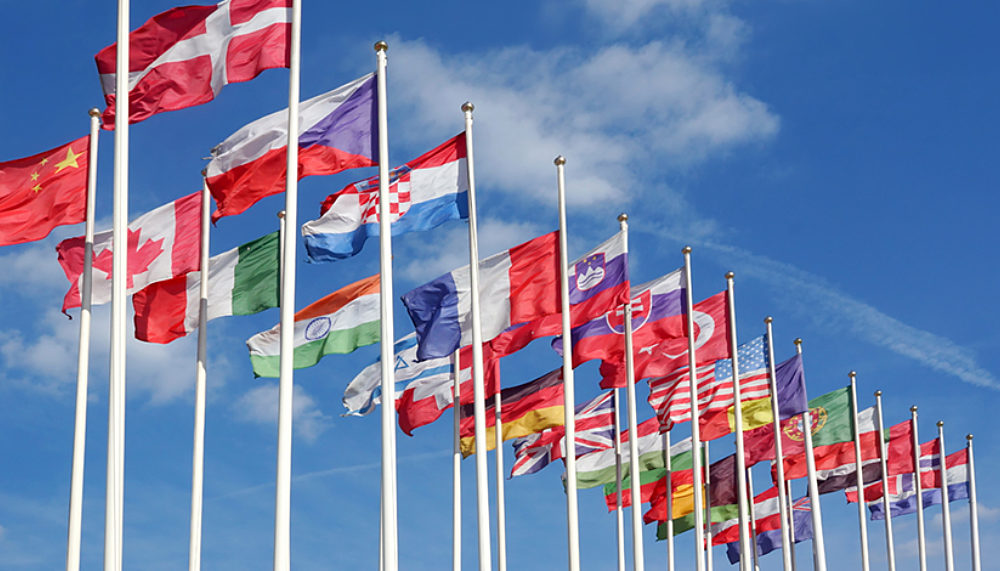
[Photo source: Shutterstock]
By Imraan Buccus
As escalating geopolitical tensions exploded when Russia invaded Ukraine a large chunk of the South African commentariat adopted an emotionally intense and uncritical pro-Western position. Suddenly the West was the home of democracy and human rights, and anyone who didn’t line up behind the West was complicit with authoritarian regimes. The national conversation was rapidly poisoned by this fervor and, as Ismail Lagardien has recently noted, many began to self-censor.
In this climate nuance has become rare and our media sometimes seems more like a social media pile on than a space for careful reflection. However, those of us with the privilege of adding our two cents worth to the national debate are morally obligated to resist mob psychology and to try and think more carefully. We need to insist that one can, and in fact should, be deeply critical of the West without being a patsy for the current enemies of the West. We need to understand that the world is complex and that a government can be terrible in one respect but better in another.
Take the ANC for instance. Its outrageous levels of corruption, repression and incompetence have devastated South Africa and must be condemned in the strongest possible terms. But this does not mean that everything that the ANC has done in office has been disastrous. The roll out of life-saving medication for people living with HIV and AIDS has been a major success.
The attempts by uncritical cheerleaders for the West to paint the ANC’s typically rather inept attempt to chart an independent non-aligned path as being nothing but a result of corruption, of funding to the party from a Russian billionaire, are deeply insulting. Whatever the ANC’s flaws; it cannot be denied that the party has its roots in African nationalism and that there is a strong current in the party genuinely committed to a more equitable international order. Naledi Pandor clearly speaks from a place of integrity which she insists that South Africa should not become a lapdog of the West.
The shrill moralism of the uncritically pro-West lobby – some working for western funded organisations – is preventing us from understanding these sorts of complexities. One of the issues that it now seems difficult to engage rationally on is that of Brics. Any sense that a commentator may see potential benefits in the Brics projects is shouted down as immoral complicity with authoritarianism and warmongering.
But we all know that western countries, like the US and the UK, back many viciously authoritarian states, and have attacked many countries since the end of World War Two. A commitment to peace and democracy would mean taking a non-aligned position in the current geopolitical conflicts.
When people say that they are for democracy and peace but are not bothered by all the authoritarian states backed by the countries in the west, and the wars it has waged; it is clear that in reality what they are for is not democracy and peace but white, Western control of the planet.
The majority of the current Brics members are authoritarian states, and only Brazil has an elected leadership that is in any sense progressive. If support for the Brics project was about copying the forms of government that we currently see in India, China or Russia it would be fair to say that support for Brics is support for authoritarianism. But this is not what the vast majority of people who have welcomed the Brics project, and its imminent expansion, want.
For most people who offer tentative support to the project its possible benefits centre around the end of the unipolar Western dominance of the world since 1990, a dominance that has reinforced highly unequal global economic and political relations and resulted in the US and its allies waging illegal wars, staging coups, and sanctioning countries that don’t accept its authority. Countries like Cuba, Haiti, Iraq, Palestine and many, many others have been devastated by the West.
If the West did not have such overwhelming economic and political power it would not have been able to get away with crimes against humanity such as the destruction of Iraq. The only way to reduce the power of the West is for other countries to build working economic and political alliances.
The moves underway to break away from the dollar as the sole global currency are in fact hugely encouraging. To argue that this is potentially valuable for the majority of humankind who have been oppressed by the West for centuries is not to claim that the current leadership of countries like Russia and India is anything other than appalling.
It is simply to say that for a country like South Africa, and for most countries in the non-Western world, a multi-polar world will enable more room to manoeuvre in economic and political terms, and reduce the capacity of the US is isolate or even devastate countries that don’t follow its line.
When, as the academic Lagardien has intimated, people are fearful of free and open discussion all we are left with is shrieking and sometimes clearly racialised moralism rather than actual evidenced based discussion and debate. We need to do better. There are real issues on the table that require real discussion.
Dr Buccus is Al-Qalam editor.


